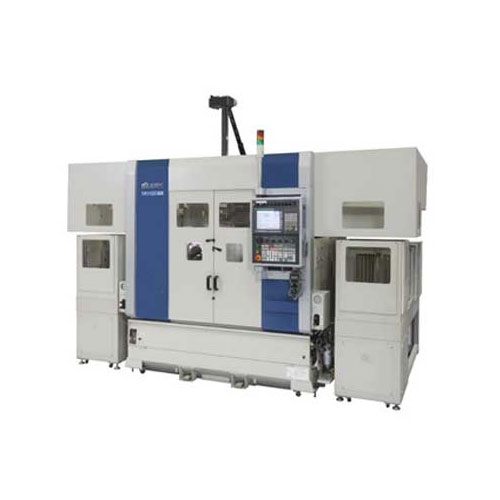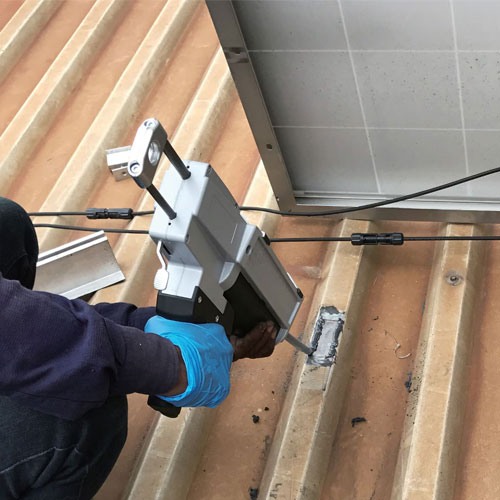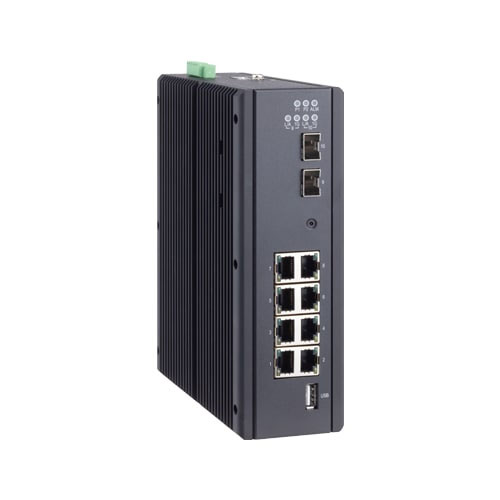Schedule a Call Back
Indian Auto Component Industry - The Silver Lining
 Technical Articles
Technical Articles- Jun 05,12
Every dark cloud has a silver lining. The fall in the value of rupee is causing much discomfort to auto manufacturers who have refrained from localising their vehicles to a large extent. As their effort to increase the local content gains speed, a window of opportunity for the Indian auto component industry is opening up. This is certain to result in a steady growth of the Indian auto industry. While the Indian auto suppliers who are exporting their ware will be able to show higher earnings, those companies that cater to the Indian market largely, will see a rise in their earnings too. The Fitch Ratings report mentions that Indian auto suppliers' credit profiles would largely remain stable in 2012, underpinned by the increasing focus of original equipment manufacturers (OEMs) on localisation. The latter would also prevent any sharp drop in revenue growth. Exposure to different segments of the domestic automotive industry will help insulate diversified auto suppliers' operating cash flows from an expected sustained contraction in automotive sales in 2012. However, smaller companies catering to limited products/market segments are likely to be more affected until the macroeconomic situation improves.

SMEs may face a tough task tackling the macroeconomic situation, the potential for their growth however remains high, given the conditions that are developing in view of the rupee losing value, and automakers looking at increased sourcing locally. This is especially the case when the Rs 1,600 billion (US$ 30.77 billion) Indian auto component industry continues to derive its growth impetus from the growth in the auto industry. An industry that is at this moment investing in new plants, new programs, and introducing new models. While it does these activities, it is certain to continue pushing for higher localisation, and therefore drive the auto components industry to higher levels, both in terms of competitiveness and earnings. The Society of Indian Automobile Manufacturers (SIAM) may expect overall automobile sales to grow by 10-12 per cent in 2012-13 on the back of supportive government policies, launch of new models and intensifying enthusiasm for cars among Indian consumers, the fact remains that many OEMs continue to source parts, critical and key parts, electronic and electro mechanical in nature, and even some special grades of steel, from the overseas markets. Companies like Honda Siel Cars India were greatly affected by the floods in Thailand.
Companies like Maruti Suzuki and Toyota Kirloskar Motor were affected by the Tsunami that struck Japan.
Conditions like these, and the changing economic scenario has been adding to the growth of the Indian auto component industry - slowly but surely. Examples of such development lie in decisions made by auto component manufacturers like Denso Corporation of Japan, which recently announced that it will invest Rs 2.7 billion (?4 billion) in India towards the building of a new manufacturing facility at Jhajjar in Haryana for windshield wiper motors and power windows, and for engine cooling modules. The new facility is expected to go be commissioned in July next year, and will employ 450 people. Says Pragya Bansal, Associate Director in Fitch India's Corporates team, "The focus on localisation by OEMs, in an attempt to curtail costs and diversify the geographical spread of suppliers, would drive the growth for auto supplies amid subdued auto sales."

Daimler India Commercial Vehicles commissioned its plant near Chennai to build the BharatBenz brand of heavy duty and light duty trucks with an initial local content of 85%. The company wholly owned by Daimler Benz of Germany, spent 4 years developing products, post the announcement of a India-centric brand, and stressed on high level of localisation. The trucks are supported by close to 300 suppliers, and many of them located in and around Chennai. While KLT and MS Auto Tech have erected a captive unit in the plant's vendor park, and supply chassis and sheet metal parts respectively, the location of other suppliers closer to the plant helps with a lean structure and logistics stream lining. As more automakers continue to invest in India (Yamaha announced that it would build a new plant near Chennai, Maruti and Peugeot are working on a plant in Gujarat, and Suzuki Motorcycles is building a new plant in Karnataka), the current depreciation of the Indian rupee is certain to benefit auto suppliers, particularly those mentioned above. In the wake of growth, they will have to increase their cost competitiveness, which will further prompt OEMs here as well as in other global markets to source components from them. The fact that India is a net importer of auto components presents a significant opportunity for domestic auto suppliers.
Some of the key growth highlights when it comes to Indian auto components suppliers include companies like Bosch India, which is contemplating to nearly triple its Antilock Braking System manufacturing capacity from current 300,000 units to about 800,000 units at its Chakan plant. The company plans to achieve this target by the end of 2013 at an additional outlay of Rs 40 crore (US$ 7.69 million).
Chennai-based automotive conglomerate TVS Group has acquired a 90% stake in Universal Components UK Ltd for Rs 100 crore (US$ 19.23 million), as part of its expansion plans. Universal Components is a wholesale distributor of commercial vehicle parts. Raymond's auto components arm, Ring Plus Aqua has acquired 78% in Pune-based Trinity India for a consideration of Rs 54 crore (US$ 10.38 million). Ring Plus Aqua's current profile includes auto components such as flywheel ring gears, flexplate assemblies, integral shaft bearings and sheet metal pulleys. 60% of what the company manufactures is exported to markets of Europe, North America and even China. Rajkot is increasingly emerging as a hot destination for auto majors with number of them setting up their operations in Gujarat. Companies orginating from Rajkot like Amul Industries supplies stainless-steel connecting rods to a number of equipment manufacturers in Italy, Turkey, USA, Dubai and Egypt, among others, who directly supply to brands like Land Rover, Toyota and Caterpillar. Another auto component manufacturer from Rajkot, Tamboli Castings, supplies components directly and indirectly to Ferrari, Jaguar, Ford and John Deere, among others. The firm supplies connecting blocks used inside direct injection gasoline engines for cars - considered a car's heart - to a German company, which supplies to Ferrari. Auto component manufacturers based in the region (Saurashtra) are planning to invest Rs 200-250 crore (US$ 38.45-48.06 million) towards capacity expansion and automation during 2012-13. Home to around 500 auto component makers, the industry in Rajkot is growing at a rate of 30-40 per cent churning a turnover of around Rs 800-Rs 1000 crore (US$ 153.81-192.27 million) annually.
Avers Bansal, "Deriving benefit from localisation and rupee depreciation would involve undertaking significant capex in capacity and capability building." A fact that seems to be well understood by the companies in Gujarat, if not in the rest of India. The investment needs for capitalising on the opportunity seems very large in relation to the internal cash accruals of most of the suppliers, prompting the need for external sources of funds - an area were SMEs are facing many difficulties. With institutions like Sidbi and special finance offers from banks like the State Bank of India, ICICI Bank expected to ease the trouble the smaller manufacturers are going through over a period of time, the fact that investment needs for capitalising on the opportunity will drive up debt for most of the suppliers is a given, though some part of this could also be funded by way of fresh equity.
While a clarity on policies, and a pro-active role towards industries taken by some states will go a long way in easing the woes of many smaller, regional and even big auto component manufacturers, including auto manufacturers, as per the analysis released by TechNavio, the Indian auto component market in India would grow at a CAGR of 11.7 per cent over 2011-15. Apart from surge in demand for automobiles, rise in auto financing activities would spur the growth of the sector.
Related Products

Compact Fmc - Motorum 3048tg With Fs2512
Meiban Engineering Technologies Pvt Ltd offers a wide range of Compact FMC - Motorum 3048TG with FS2512.

Structural Adhesive for Solar Panel Roof Mounting
Parson Adhesives India Private Ltd offers a wide range of structural adhesive for solar panel roof mounting – Partite 7535.

Industrial Tsn Switch
Contec launches a future-ready Industrial TSN Switch- SH-9210TSN.














